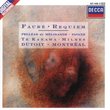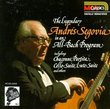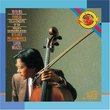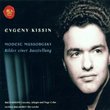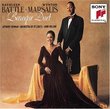| All Artists: Erik Satie, Claude Debussy, Maurice Ravel, Darius Milhaud, Gabriel Faure, Jacques Ibert, Orpheus Chamber Orchestra Title: Creation Members Wishing: 0 Total Copies: 0 Label: Sony Release Date: 3/6/2001 Genres: Jazz, New Age, Classical Styles: Modern Postbebop, Bebop, Ballets & Dances, Ballets, Chamber Music, Forms & Genres, Concertos, Suites, Historical Periods, Classical (c.1770-1830), Modern, 20th, & 21st Century, Instruments, Reeds & Winds Number of Discs: 1 SwapaCD Credits: 1 UPCs: 696998925120, 5099708925123 |
Search - Erik Satie, Claude Debussy, Maurice Ravel :: Creation
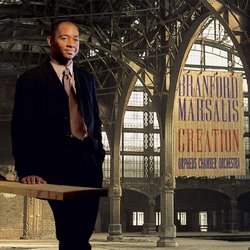 | Erik Satie, Claude Debussy, Maurice Ravel Creation Genres: Jazz, New Age, Classical
This CD is the long-awaited follow-up to jazz saxophonist Branford Marsalis's 1986 debut, Romances for Saxophone with the English Chamber conducted by Andrew Litton. Since that project, Marsalis has led his own jazz combos... more » |
Larger Image |
CD DetailsSynopsis
Amazon.com This CD is the long-awaited follow-up to jazz saxophonist Branford Marsalis's 1986 debut, Romances for Saxophone with the English Chamber conducted by Andrew Litton. Since that project, Marsalis has led his own jazz combos and worked with The Grateful Dead and Sting. On this recording, Marsalis's superb soprano and alto sax are buoyed by the wonderful, conductorless Orpheus Chamber Orchestra, an ensemble that was featured on Herbie Hancock's Gershwin's World. Marsalis's clear sound and mature phrasing imbue French classics like Ravel's "Pavane pour une infante défunte," Debussy's ragtime-rhythmed "Golliwogg's Cake-Walk," and Fauré's "Pie Jesu" with verve and vitality. Marsalis navigates the New World syncopations of Darius Milhaud's "Saudades do Brasil" with the same ease he displays on the composer's jazz-inspired ballet, "La création du monde." On Jacques Ibert's showcase for the alto saxophone, "Concertino da camera," Marsalis's negotiation of its florid melody and his swing-spiced cadenza show that the innovations of jazz improvisation have enriched and extended the classical tradition. --Eugene Holley Jr. Similarly Requested CDs
|
CD ReviewsThe Creation of an Enjoyable Disc Dr. Christopher Coleman | HONG KONG | 04/20/2001 (4 out of 5 stars) "Saxophonist Branford Marsalis comes from a family of Louisiana musicians--his father, Ellis, is an important jazz pianist and professor of Music at the University of New Orleans, and his more well-known younger brother, Winton, has achieved much acclaim as a trumpeter in both jazz and classical worlds and as a composer of significance. Branford is probably most well-known to American audiences as the leader of the Tonight Show orchestra, and while jazz is certainly his greatest interest he has worked with rock musicians Sting and the Grateful Dead, among others. In this CD, Creation, he expands his horizons to include french art music of the late 19th and early 20th century, performing transcriptions and originals of pieces by Faure, Satie, Debussy, Ravel, Milhaud, and Ibert. One qualm I have is that the Orpheus Chamber Orchestra, one of the finest chamber ensembles in America, is scarcely given a chance as an equal partner. Darius Milhaud's La Création du Monde is NOT a saxophone concerto, and although the first time I heard this interpretation I was intrigued, by the second listening I found the forward presence of the sax inappropriately overwhelming, especially in passages like the fugato.Marsalis is a fine saxophonist, but frankly, there are better. His vibrato, so often the factor that leads saxophonists astray, is well-controlled, but his tone quality is a bit thin. Whether this is because he has crossed over to literature that is less familiar to him I am not sure, or perhaps he is more accustomed to performing with amplification and various processing. Nonetheless, these are generally fine performances, and I`d much rather listen to this than Kenny G's trivia. Tempi are appropriate, wonderfully brisk at times, and the musical selection is interesting. In some of the slower movements, such Ravel's Pavane for a Dead Princess (Pavane pour une infante défunte), Marsalis seems a little at a loss in his interpretation. But in the faster movements the performances are delightful.The saxophone is of course the ultimate crossover instrument (with the guitar, that is), and that the music on the disc is French, like the saxophone itself, with some American jazz influences, like Marsalis himself, is perfectly appropriate. The saxophone is a fairly modern instrument, created by the Belgian Adolphe Sax in Paris in the 1840's, and promoted by his friend Hector Berlioz. It originally came in 14 different sizes (only 4 are common now, of which Marsalis plays soprano, alto, and tenor--although only the first two on this CD.) Adolphe Sax's first significant success was in having the saxophone adopted by French military bands. To achieve this he set up a competition between a standard military band and a band composed exclusively of saxophones. I know some musicians to whom this would be a nightmare, and on what basis the competition was judged has apparently been lost to history. Certainly the saxophone is an extraordinarily acoustically efficient instrument and is easily capable of the widest dynamic range of any of the woodwinds--perhaps it simply and literally blew away the competition. The homogeneity of sound might also have been in its favor. The sax became popular in American dance bands around World War I, and the jazz influence on French composers like Ravel and Milhaud began at about the same time. Reflecting this, the energetic performance of Milhaud's Scaramouche is one of the highlights of the disc, and here the sax IS intended as a solo instrument. My final qualm is that there is a maddening lack of information on the disc. The notes, by author Rafi Zabor, are articulate and a pleasure to read, but there is no biographical information on Marsalis, and not even a mention of which saxophones he plays in the various pieces. While many listeners may already have this information, it seems a fairly basic thing to provide. Otherwise, though, I recommend this as an enjoyable disc." Fairly lackluster, but interesting to hear M. Carter | USA | 12/07/2001 (3 out of 5 stars) "Branford Marsalis is an excellent jazz saxophonist.However, he runs into the same problems many jazz musicians have when trying to "cross over" into classical: too little emphasis on tone quality, rough articulation, trouble blending with the strings, and in some cases, sloppy ensemble technique.Perhaps this latter problem has more to do with the lack of a conductor than a lack of skill.Marsalis plays quite respectably on the Ibert. He doesn't take the ossia altissimo passages, but many "classical" artists don't either, so I can't fault him for that.The "Scaramouche" comes off the best of all the traditional recital pieces on this disc. Marsalis caputures the fleeting playfulness of the first movement, and his technique is flawless here.His tone is unacceptably bright and raucous in the "Creation du Monde," however. His playing in that piece is beyond the range of any interpretation I've ever heard. Much of this has to do with the placement of the microphones and the production of the recording as well.I would have preferred that the disc include fewer transcriptions, but Marsalis seems to enjoy recording transcriptions instead of the more serious works for classical saxophone. It would be interesting to hear him play some of the heavier repertoire: the Glazonov concerto, the Dubois Concerto, the Dahl concerto, etc." The Disc Title Says it All Fred McGhee | Austin, TX | 10/14/2004 (4 out of 5 stars) ""Creation" is probably the best word one could choose for this fine effort. This is an interesting recording, one that mostly excels, but also has some shortcomings.
Branford's playing is a lot of things here, studied, practiced, prepared, thorough, and strong. It could have been more sensitive and collaborative. This is not something that necessarily need be laid at his door; it could be a "group" thing as much as anything. Other reviewers have noted that ensemble players often have difficulty working within an orchestra setting, and that the presence of a conductor could have kept things in check. But that was not the point of this effort. If Orpheus and Branford had wanted a conductor they would have hired one. So one must use a more nuanced and blended yardstick to measure this . The compositions themselves clearly have a strong jazz influence, so the conceptual approach of the players is not only entirely appropriate but interesting. And that's what in the end separates jazz music from classical music. You may not like what people play or the way they play it, but at least it's not the same old stale sh-t. Branford's history of exploring a variety of musical stylings comes in well here; I appreciate his playfulness and almost joyful approach to some of these pieces. That's the way I think they ought to be played. Highly Recommended." |

 Track Listings (16) - Disc #1
Track Listings (16) - Disc #1